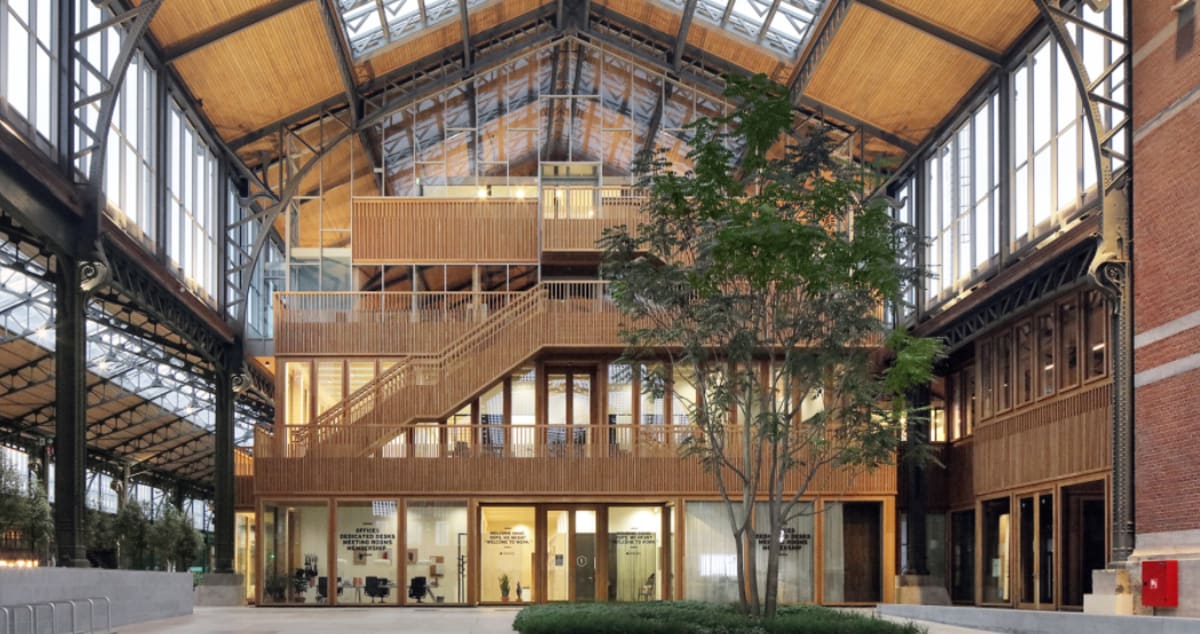Flexible workspaces will help companies achieve their ESG goals over the coming decade. For investors, partnering with the right operator could pay dividends.
With world leaders coming together in force at this year’s United Nations Climate Change Conference (COP26), the urgency of the climate crisis and what action is being taken, has never been under greater scrutiny. For many companies this will be the most visible aspect of a growing need to address environmental, social and governance (ESG) issues that will impact every area of their decision-making.
Not only does the mainstream adoption of hybrid working represent a huge opportunity for franchisees investing in flexible workspace but, happily, it also plays a major part in helping companies meet their goals on sustainability. Here’s how…
Setting goals
With climate change among a raft of issues that will dominate public policy for the next decade and beyond, companies will come under increasing pressure from stakeholders to formulate their own ESG goals and demonstrate that they are making progress towards achieving them.
The World Economic Forum has gone some way towards creating a set of common metrics for consistent reporting of ‘sustainable value creation’. This identifies some 22 different measures that companies can score themselves on, ranging from greenhouse gas emissions, community investment and employees’ health and wellbeing, to ones such as their water consumption, impact on nature loss and levels of workplace training.
Our recent white paper ‘Hybrid World: Sustainable World’ explains how hybrid working can play a major role in helping companies achieve their ESG goals, specifically showing how it can support a number of the United Nations’ Sustainable Development Goals for 2030.
By adopting the hybrid model and incorporating flexspace into their workspace strategies, businesses can effectively downsize their real estate footprint, in turn reducing their carbon footprint. It’s often called right-sizing: in a traditional office environment everyone has their own desk but many are unoccupied at any one time. By reducing the size of their HQ and providing employees with access to local flexspace, companies only use the space that they need and can scale up or down as required.
That’s significant, since buildings account for 39% of CO2 emissions globally and, apart from the carbon embedded in construction, office buildings are large consumers of energy, both for heating and air-conditioning.
The reduced need for commuting in the hybrid model is also beneficial because it considerably lowers the carbon impact caused by travel. What’s more, it’s a significant step towards the UN goal of achieving good health and wellbeing because people don’t have to spend hours each day in their car or on a train.
Building better
According to real estate services company JLL, new buildings with the most sustainable specifications are achieving the highest premium in rents. Its research shows solid evidence across multiple markets including the UK, the US, Australia and India, that highly rated buildings attract premium rents with a consequent uplift to valuations.
Buildings that are highly rated under the BREEAM (Building Research Establishment’s Environmental Assessment Method) or LEED (Leadership in Energy and Environmental Design) schemes are ripe for investment, as both reward buildings that use less energy in their construction and operation, reduce waste, conserve water and use sustainable materials.
IWG Spaces’ Tour & Taxis location in Brussels, for example, is set within the BREEAM Outstanding-rated Gare Maritime, which achieves carbon neutrality through geothermal and solar power. Rainwater is harvested to irrigate its ten on-site gardens.
Power partnerships
Franchisees can capitalise on the long-term trend for hybrid working by partnering with IWG, which is committed to ongoing improvement in the use of energy in its neighbourhood flexspaces, for example. Investors who back eco-friendly flexible workspaces are not only doing their bit to save the world – they will create financial value in the process.
Ultimately, the flexspace sector represents a high-growth industry that has been boosted by the accelerated adoption of hybrid working. Combined with the model’s proven benefits when it comes to meeting businesses’ ESG goals, it’s no surprise that flexible office space is rapidly emerging as the leading option for franchise investment post-pandemic.
Are you ready to meet the demand for flexible office space? Find out more about IWG’s franchising partnerships today.






